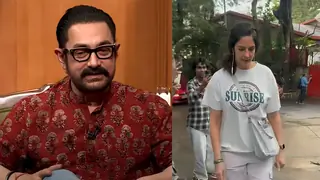Originally posted by: charades
Thanks Jaya👏...
But Sorry to say your answer for the Fourth one is not accurate and second one is partially correct..
Trust me I am not going to ask you any Q's further...
you can give the answer''s when you have time and do keep in mind I am more interested in reasoning
So Good luck and Thanks Again....
OK - I will try to attempt 2 and 4 again, though not sure what is wrong!
2. There is only pen and paper available and nothing else on a round table of 9 accountants. Without disclosing one's salary, They need to find out their average salary.
The first accountant picks a random x-digit integer, adds his salary to it and writes the sum on a chit. The chit is passed around and thesecond accountant takes a fresh chit, adds his salary to the amt on first chit and passes the new chit to the 3rd accountant.. This goes on for all the 9... When the chit returns to the first accountant, the value on the chit is sum of 9 salaries + x, he subtracts the x-digit integer, divides the resulting number by 9 to find the average salary
4. There are 100 closed doors. 1st person who comes, opens all doors.
2nd person changes the current state of every 2nd door (opens closed door and closes open door).
3rd person changes state of every 3rd door, starting from 3rd door. This continues till 100th person.
How many are closed doors by the end.
Let us consider door # x. If x is divisible by 2, its attended by 2nd person, if divisible by 3, attended by 3rd person and so on.. so a door x will be attended for every divisor it has.. example door number 50 has 1 & 50, 2 & 25, 5 & 10. so on pass 1 i will open the door, pass 2 i will close it, pass 5 open, pass 10 close, pass 25 open, pass 50 close. so for every pair of divisor will end up being closed.. However, for perfect squares, the number of divisors will be odd (as one will repeat).. leaving it open at the end.. so, only perfect square doors will be open at the end. Within 100, there are 10 perfect squares.. so 90 doors will remain closed

























